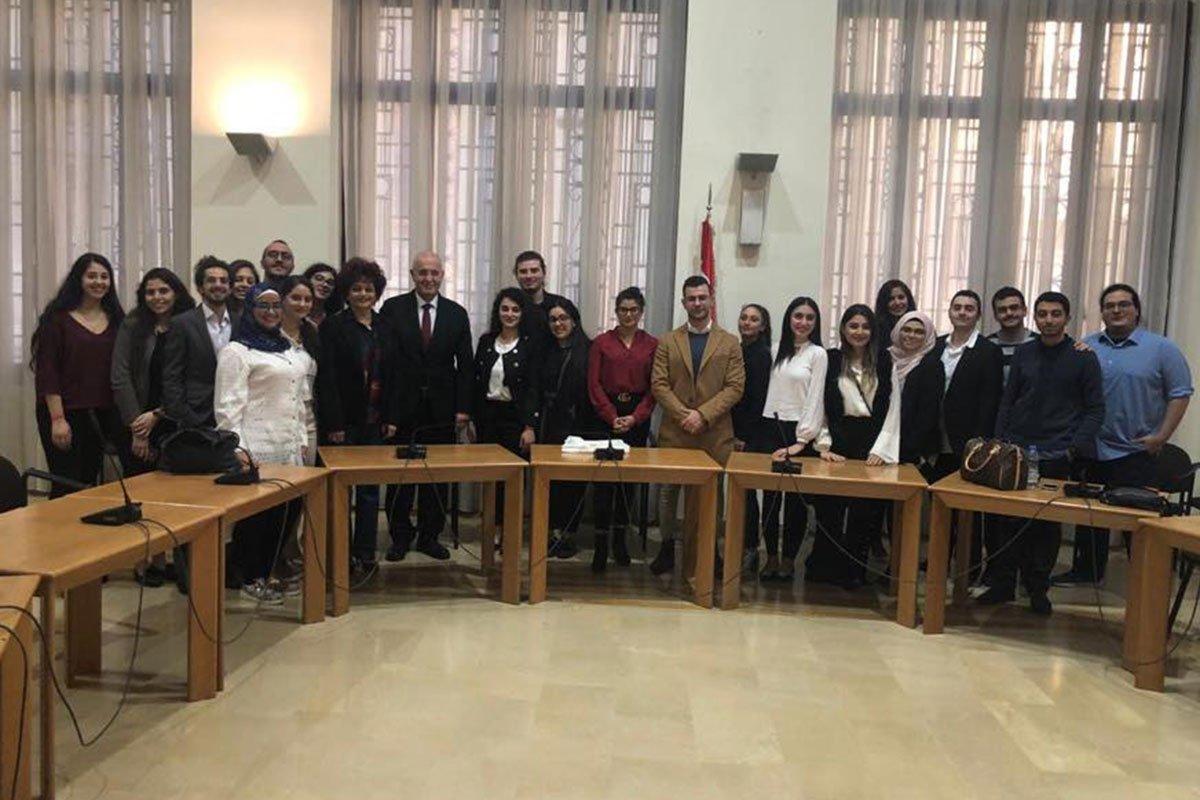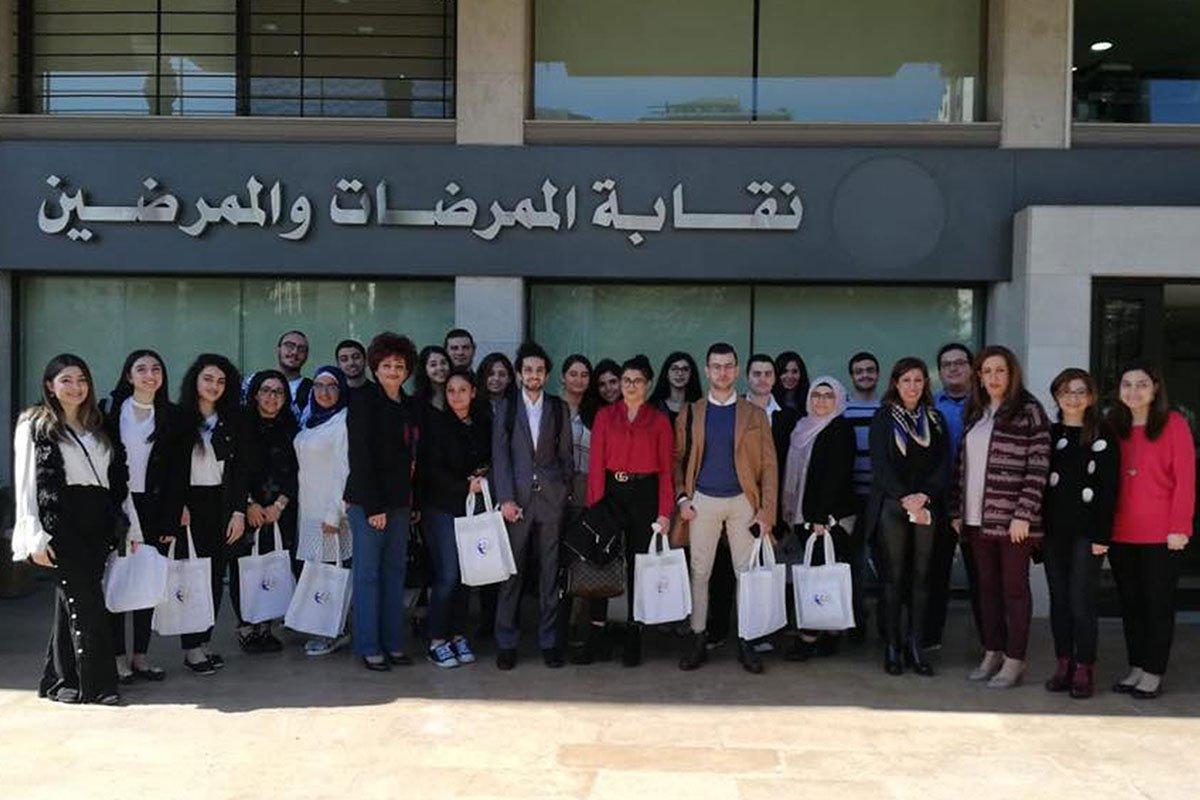Empowering Nurses to Advance Their Profession and Healthcare
ARCSON prepares its students to become active participants in the decision-making process.
Students’ transition from the classroom to the workplace brings with it a whole new set of challenges. More so for nursing graduates who not only need to adapt to their role within the healthcare system, but also gain a broad understanding of the state of healthcare in the country.
To make their transition as seamless as possible, LAU’s Alice Ramez Chagoury School of Nursing (ARCSON) ensures that they are well-informed about the economics, policies, and regulations surrounding healthcare in Lebanon, and how they – as nurses – may best serve their profession and its advancement.
In their senior year, nursing students learn to examine the structure, function, and effectiveness of services across all levels, and to recognize the importance of accountability for their own actions, among other outcomes, says Associate Professor and Assistant Dean Myrna Abi Abdallah-Doumit.
As this knowledge is best gained first-hand, Dr. Doumit – who is also the President of the Order of Nurses in Lebanon (ONL) – accompanied her students on informative visits to the ONL, the Ministry of Public Health (MoPH) and Parliament, during which they explored their potential role in each institution, the advantages of joining ONL, and laws and regulations set by the MoPH.
They also got to raise health and career issues and learn about the progress made in increasing the visibility of nurses and securing the benefits they deserve.
Through these visits, said Dr. Doumit, students learn to “Evaluate the influence of policy, regulation, and economics on the delivery of healthcare to individual, families, communities, and populations,” and to hone their skills in preparing and posing questions in public – “leadership skills that we would like to instill in our students.”
The experience was an eye-opener for the future nurses who were encouraged by the strides that ONL is making on behalf of their community, through its “strategic goals to protect them, advance the profession, and enhance the nursing image,” said senior student Meghry Kevork.
While advocating for the nurses’ rights, the order’s committees are in effect redressing the misconception in Lebanese society that nurses do not matter as much as other healthcare professionals and are not entitled to benefits, added student Rayan Al Orfali. For her peer, Sylvia Seraydarian, this change in society’s perception of nurses “may be the main source of resolving the problems that the profession is facing,” as a clear definition of the job might attract more students to choose nursing for a career.
Against their expectations, the students were pleased to learn that they had an essential role to play at the MoPH, where they discussed the healthcare system in Lebanon with key people from various departments.
When it came to regulations and economics, the students took the opportunity to enquire about the MoPH’s monitoring programs for vaccinations, support programs for mental health, measures to prevent or stave off noncommunicable diseases, and plans to resolve the garbage issue and enforce non-smoking in designated areas.
“We learned, for instance, that Lebanon has been a Polio free country since 2002, because of vaccination and proper hygiene,” said Kevork, “and that primary healthcare centers also carry out community-based work through home visits and awareness campaigns.”
The meeting with Deputy and Head of the Health Committee at Parliament Assem Araji stood out the most for Al Orfali and her peers. “At parliament, we felt that we can actually make a change,” she said, and “I personally learned from this visit that, contrary to what we Lebanese tend to think, parliament does put in work for the sake of Lebanon.”
While the nursing profession is undergoing many changes at the legislative level, there is still room for improvement which the nurses, themselves, need to realize. Critical issues that need to be addressed are salaries and adjusting the nurse-to-patient ratio to ease the burden borne by the healthcare providers.
“Nurses should be there with the authorities at the decision-making table and should make sure that no decision in healthcare is made without them,” said Kevork, “because, at the end of the day, they are the heartbeat of every healthcare institution.”
This is precisely what ARCSON aspires for – that its students not only grow into excellent healthcare providers, but also bold speakers and active participants in advancing health and patient care.

